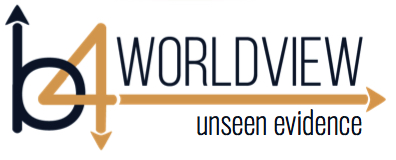
Key Thought for this session:
“If any outcome of life is acceptable to me, then any path will get me there.”
We discussed human nature earlier and the type of influences it has on what we believe. Our nature tends to create in us a core worldview that "good" is a quality of an object that provides us a favorable experience. In other words, if it makes us feel good in the moment, then we call it good. So, if we are hungry or happen to really enjoy pie, we might be given a piece of pie and say, "That is good pie!" But, ...if we had just eaten or maybe we don’t really like pie, we may not think the pie is so good.
But, suppose we had a different core worldview about what makes something "good."
Sometimes we assess something to be good primarily because of the reputation of who made it. For example:
Speaking of pies. I have neighbor who always makes delicious desserts. I have never known her to make a dessert that was not amazing. So, when she tells me she has made a dessert and wants me to come over and have some with her, I already know it is “good”—even though I have not tasted it, yet. I assign goodness to it based on the reputation of its maker, right? .... not on how it tastes to me—because I haven’t tasted it, yet.
And here’s another example. Have you known a very loyal Mac user? They often have such high regard for the quality of products made by Apple corporation, that they just assume anything made by Apple is better than anything made by anyone else. So, they would consider a new iMac, or iPhone to be “good”—even before they have a chance to try out the latest model. This assessment of good is not based on their experience with that specific product, but it is based on their trust in its maker.
One last example: People today, more than ever before, are into nutritional supplements. I’m one of those people. I have learned that there is BIG difference in quality and effectiveness between different vendors of vitamin and protein powder products. I have learned to make decisions about which one to buy based on who manufactures it. Most of my research is focused on looking for the company values of various manufacturers and how their values affect things like the quality of their ingredients, their manufacturing processes, their packaging policies, etc. So, I tend to choose specific products based on who makes it. In other words, I consider a product good because of the trust I have in its maker.
And just to keep you thinking a bit deeper about these things, sometimes what is competing about solutions is not the destination, but the journey. Have you heard the saying, “It’s not the destination that counts, but the journey?” That’s what that saying is all about. There may be two different ways to get a million dollars. One way is to get really smart about business, work real hard for lots of years, make wise investments, save your money, and then you will eventually get the million dollars. Another way is to rob a bank. These are seen as competing solutions because what is really important is not that you get the million dollars, but it is all the life lessons and character you acquire (or not) along the way. So, someone might say, “These are preferential solutions because they both get you a million dollars,” but actually, they are really competing solutions because the real outcome is not the money, but the life experiences, whether good or bad.
You can probably find lots of other examples like this in your life, but the point is:
Answering the question about what is “good” is just another way to view the question, “Which way is up?”
Granted, it is not an earth-shaking decision to figure out whether a pie is good, or an electronic device is good, or a vitamin supplement is good. But the process is the same for those decisions that ARE life changing choices. Do I trust my own physical senses to determine what is good, or is it going to be better for me to trust a more competent expert? And then, if we are going with another expert, which ONE should I trust?
It can be surprising how often questions like this appear to have more than one answer. The different ways we assess how something is good can be preferential, but are often competing, which means sometimes it ends up being really, really important to be able to select the competing solution that will truly be best for us.
This brings us back to our memory principle for this session, - “If any outcome of life is acceptable to me, then any path will get me there.”
This principle is a sober reminder that we really need to work on figuring out “which way is up.” Otherwise we will wake up years from now in a bad place, wondering how we got where we are.
Let’s stop here a moment and see how you understand the points we have just discussed about truth. The last little bit of this course concerns how you understand the choices you make that lead you to what you believe.